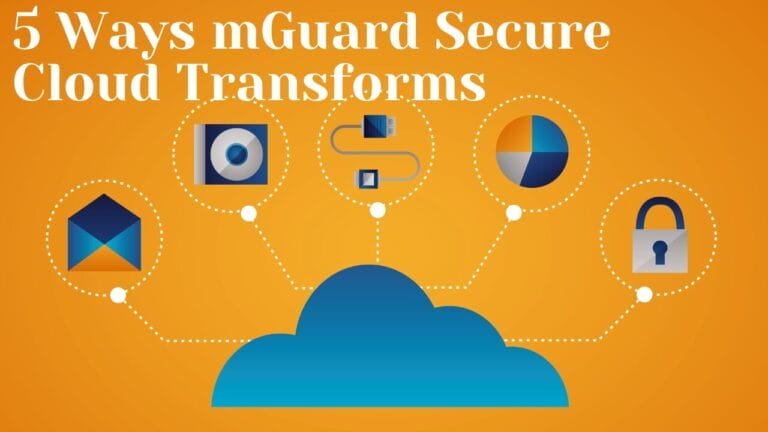Sky’s the Limit: How to Soar as a Cloud Security Analyst in 2024!
It is impossible to overstate the significance of cloud security in today’s dynamic digital environment. There is a growing need for qualified experts who can protect these digital ecosystems as more and more businesses move their activities to the cloud. A particularly important role in this regard is that of a Cloud Security Analyst. In this piece, we’ll delve into the specifics of this ever-evolving industry and offer advice on how to become a successful cloud security analyst in 2024.
Introduction
Brief overview of the importance of cloud security
Securing sensitive data becomes critical as more businesses move to cloud-based infrastructures. An essential part of ensuring the confidentiality and integrity of digital assets is played by cloud security analysts.
Introduction to the role of a Cloud Security Analyst
An expert in cybersecurity with a focus on protecting cloud-based apps and systems is called a cloud security analyst. They have a broad range of duties to perform, from finding vulnerabilities to putting strong security measures in place.
Growing Significance of Cloud Security
In an age of digital revolution, cloud service use has increased across industries at a rate never seen before. Large and small businesses both are using the potential of the cloud to improve scalability, innovate, and streamline operations. But this growth also brings with it an inevitable challenge: the requirement for strong security measures to protect private information and important assets. This section explores the growing importance of cloud security and highlights the growing need for qualified experts in the industry.
Statistics on the increasing use of cloud services
Current data shows the widespread use of cloud-based technologies. Industry projections predict that the worldwide cloud services market will develop at a compound annual growth rate (CAGR) of more than 15% in the upcoming years, setting new records. This quick growth is a sign that companies are realizing the benefits of cloud services’ cost-effectiveness and adaptability.
Cloud adoption is widespread throughout many businesses, including e-commerce, healthcare, banking, and more. It is not exclusive to just one of these sectors. The data presents an impressive picture: most firms have either completely adopted cloud solutions or are in the process of moving their operations to the cloud.
The risks associated with cloud vulnerabilities
While there are many advantages to cloud computing, there is also a drawback: a higher risk of cyberattacks. Because cloud infrastructures are intricate ecosystems, any security breach could have far-reaching effects. Potential dangers include illegal access, data breaches, and service interruptions, emphasizing the vital necessity of thorough security protocols.
Businesses are much more aware of the hazards associated with cloud vulnerabilities in the wake of high-profile cyberattacks and data breaches. Never before has it been more crucial to protect sensitive data kept on the cloud, requiring a proactive approach to cybersecurity.
The need for skilled Cloud Security Analysts
The need for qualified experts who can handle the complex world of cloud security has increased due to the growing risks connected with cloud vulnerabilities. Among these experts, cloud security analysts are particularly important since they help protect digital infrastructures from constantly changing threats.
Companies are actively looking for someone with experience in cloud security to ensure the availability, confidentiality, and integrity of their data. A cloud security analyst’s position is becoming more and more important for any company that uses the cloud as the digital landscape develops.
Key Skills for a Cloud Security Analyst

It takes a wide skill set to succeed in the fast-paced world of cloud security. at cloud environments, cloud security analysts are at the forefront of protecting businesses from cyberattacks. This section explores the basic skills needed for a Cloud Security Analyst to successfully manage the intricacies of their work.
Technical proficiency in cloud platforms
A thorough awareness of several cloud platforms is one of the fundamental abilities of a Cloud Security Analyst. It’s essential to be familiar with key cloud providers like Google Cloud, Azure, and AWS. Being proficient involves understanding every aspect of a platform, including its security features, setups, and nuances. It goes beyond having a basic understanding.
Cloud security analysts need to be skilled at using cloud consoles, setting up access restrictions, and putting encryption systems in place. It is imperative to have a thorough understanding of the technical features of cloud platforms, whether it is serverless architectures, virtual machines, or containers.
Knowledge of cybersecurity principles
Since cloud security and cybersecurity are related, a cloud security analyst needs to have a strong understanding of cybersecurity concepts. This involves being knowledgeable about access control, network security protocols, and encryption algorithms. Important elements of this skill set include understanding threat intelligence and being able to assess and react to security problems.
Understanding the intricate details of cyber threats, ranging from malware to phishing attempts, enables Cloud Security Analysts to proficiently foresee and manage possible hazards. A solid understanding of cybersecurity principles is essential in an environment where cyber threats are evolving quickly.
Analytical and problem-solving skills
In dynamic cloud systems, identifying and mitigating security threats requires analytical thinking and strong problem-solving abilities. Large datasets, logs, and security warnings are common tasks for cloud security analysts. It is essential to be able to evaluate this data, spot trends, and come to sound decisions.
Good problem-solving includes creating and putting into practice security plans that are tailored to the particular difficulties presented by cloud computing settings. Cloud Security Analysts must conduct risk assessments, correct vulnerabilities, and respond to security incidents with analytical precision in every activity they perform.
Educational and Professional Paths
Taking an organized approach to education and professional growth is necessary while starting a career as a cloud security analyst. This section delineates the several paths that individuals might pursue to obtain the requisite information and abilities. These paths may include academic pursuits, attainment of pertinent certificates, and practical experience.
Relevant academic backgrounds
Although there isn’t a single academic route to becoming a cloud security analyst, a few specific degrees offer a good starting point for career success. Highly relevant degrees are those in cybersecurity, information technology, computer science, or a similar sector. These courses frequently address important facets of networking, system management, and cybersecurity—all essential elements of cloud security.
People having training in these areas are better suited for understanding the security protocols and technological nuances of cloud settings. It’s important to remember, too, that commitment and passion frequently succeed over formal education. A large number of successful Cloud Security Analysts come from a variety of academic backgrounds, demonstrating how inclusive the subject is.
Certifications for Cloud Security Analysts
The validation of Cloud Security Analysts’ knowledge is mostly dependent on their certifications. They not only expand one’s knowledge but also offer a respected certificate that may be used to gain employment. In the industry, several certifications are highly valued:
- Certified Cloud Security Professional (CCSP): The vendor-neutral Certified Cloud Security Professional (CCSP) credential, which focuses on cloud security concepts, is well-known in the field.
- Certified Information Systems Security Professional (CISSP): This certification is useful for prospective Cloud Security Analysts since it covers Cloud Security as a critical domain, even though it covers broader cybersecurity subjects.
- AWS Certified Security – Specialty: The Amazon Web Services certification AWS Certified Security – Specialty attests to an individual’s proficiency in protecting AWS environments, which is an essential ability for cloud security analysts.
- Microsoft Certified: Associate in Azure Security Engineering: This certification, which has been designed for Azure environments, shows that the holder is knowledgeable about protecting Microsoft’s cloud platform.
It’s crucial to select credentials based on your professional objectives and the particular cloud platforms you plan to use. In addition to imparting theoretical knowledge, these certificates frequently involve actual competence testing.
Tools of the Trade

Having a comprehensive tool of specialized software and tools is crucial for Cloud Security Analysts to effectively navigate the intricacies of cloud environment security. An overview of the major tools that are essential to Cloud Security Analysts’ daily tasks is given in this section.
Overview of Essential Tools for Cloud Security Analysts
1: Security Information and Event Management (SIEM) Systems:
- Purpose: Log data from several sources is collected and examined to identify and address security events.
- Examples: Splunk, ELK Stack, IBM QRadar.
2: Vulnerability Scanners:
- Purpose: Identifies vulnerabilities in the cloud infrastructure and applications, allowing for proactive remediation.
- Examples: Nessus, Qualys, OpenVAS.
3: Intrusion Detection Systems (IDS) and Intrusion Prevention Systems (IPS):
- Purpose: Keeps an eye out for potentially harmful activity on the network and the system, with the ability to stop it with an IPS.
- Examples: Snort, Suricata, Cisco Firepower.
4: Cloud Security Posture Management (CSPM) Tools:
- Purpose: Ensures cloud infrastructure configurations align with security best practices and compliance standards.
- Examples: Prisma Cloud, Dome9, CloudCheckr.
5: Network Security Monitoring (NSM) Tools:
- Purpose: Monitors network traffic to keep an eye out for any unusual activity or potential security risks.
- Examples: Wireshark, Security Onion, Darktrace.
How to stay updated on the latest security tools
Cloud Security Analysts need to keep up with the latest security tools and technology because cybersecurity is a dynamic field. The following tactics will ensure that experts in their industry stay at the forefront:
1: Participate in Webinars and Conferences:
- To find out about new tools and best practices, attend cloud security-focused conferences and webinars. Occasions such as the RSA Conference and AWS re: Invent are great chances.
2: Engage in Online Communities:
- Participate in online communities, forums, and discussion groups where experts in cybersecurity exchange ideas and talk about the latest technologies. Discussion boards such as Stack Exchange, Reddit, and specialist forums are good places to start.
3: Continuous Professional Development:
- Enroll in courses and certifications that demand you to maintain current knowledge of security tools through ongoing education. Recertification requirements for many certificates promote lifelong learning.
4: Follow Industry Blogs and Publications:
- Read publications, blogs, and articles about cybersecurity regularly from reliable sources. This covers industry news, security research findings, and vendor blogs.
5: Networking with Peers:
- Create a professional network in the field of cybersecurity. Attending networking events—both physical and virtual—offers the chance to hear about and learn from colleagues’ tools and experiences.
Cloud Security Analysts can stay up to date on the newest techniques and tools by being proactive about studying and being in touch with the cybersecurity community. The techniques described here will be essential tools in the analyst’s toolbox as we explore real-world applications and traverse cloud security concerns in the upcoming sections.
Challenges in Cloud Security
Cloud Security Analysts are at the forefront of protecting digital assets in a dynamic and ever-evolving landscape as more and more businesses adopt cloud technology. This section analyzes common challenges that cloud security analysts must overcome as well as practical solutions.
Common challenges faced by Cloud Security Analysts
1: Complexity of Cloud Environments:
- Challenge: With several services, platforms, and customizations, cloud infrastructures can be complex. For analysts, understanding and protecting these complex settings is a major task.
2: Balancing Security with Usability:
- Challenge: It’s difficult to find an agreement between keeping user-friendliness and implementing strong security measures. Careful thought must go into implementing strict security procedures that don’t compromise operational effectiveness.
3: Addressing Compliance Issues:
- Challenge: Requirements for regulatory compliance frequently clash with cloud security. For cloud security analysts, making sure cloud environments follow industry-specific requirements adds another level of complexity.
4: Swift Response to Emerging Threats:
- Challenge: Due to the rapidly evolving nature of cyber threats, Cloud Security Analysts must act decisively and quickly. Proactive actions and real-time monitoring are necessary to detect and mitigate emerging dangers before they become more serious.
Strategies to overcome these challenges
1: Holistic Security Training:
- Strategy: Provide comprehensive training courses that address cloud security analysts’ technical needs as well as a more general awareness of cloud ecosystems. This enables analysts to handle complexity more skillfully.
2: Collaboration with Cross-Functional Teams:
- Strategy: Encourage cooperation throughout IT divisions, security teams, and other pertinent parties. When security measures are implemented in an integrated way, operational requirements, and usability issues are taken care of.
3: Automation of Security Processes:
- Strategy: Automate incident response and regular security chores. By increasing productivity, automation tools free up analysts to concentrate on more intricate risks and strategic security planning
4: Regular Audits and Assessments:
- Strategy: To find vulnerabilities and ensure compliance, conduct routine security audits and assessments. By taking a proactive stance, possible problems are addressed before they become significant security threats.
5: Incident Response Planning:
- Strategy: Plan out and update incident response procedures regularly. Having a plan in place for security issues helps minimize damage and prevent it by ensuring a prompt and coordinated response.
The challenges of cloud security must be navigated successfully with a combination of technical know-how, strategic preparation, and proactive thinking. By putting these strategies into practice, cloud security analysts greatly improve the security posture and resilience of the companies they work with. We’ll explore real-world cloud security applications in the ensuing sections, offering insights into how these problems are resolved in real-world situations.
Real-World Applications

Real-world applications are essential to understanding how Cloud Security Analysts contribute to the security and resilience of businesses, as their job continues to expand. This section explores case studies that highlight effective applications of cloud security solutions and highlight the diverse duties of cloud security analysts.
Case studies illustrating the role of a Cloud Security Analyst
Securing Cloud Infrastructure for E-Commerce Giant:
- Scenario: Securing its vast cloud infrastructure proved to be difficult for a prominent e-commerce corporation. With a large network of servers, databases, and client information, the business required a thorough security plan.
- Role of Cloud Security Analysts: The function of cloud security analysts was to provide an in-depth risk analysis, find weaknesses, and put in place strong access controls. Additionally, they included automated monitoring systems to quickly identify and address any threats.
- Outcome: The business saw a significant drop in security events, protecting client information and maintaining millions of users’ confidence.
Mitigating DDoS Attacks for a Financial Institution:
- Scenario: Online services were interrupted by frequent Distributed Denial of Service (DDoS) assaults against a financial institution. The organization looked for a way to reduce these assaults and improve security in general.
- Role of Cloud Security Analysts: The function of cloud security analysts is to identify and mitigate harmful traffic by implementing a cloud-based DDoS prevention service. During attacks, they also worked together with network teams to improve traffic routing.
- Outcome: The impact of DDoS attacks was significantly reduced for the organization, protecting sensitive financial data and ensuring clients’ uninterrupted online services.
Successful implementation of cloud security measures
Multi-Factor Authentication (MFA) Implementation:
- Strategy: A tech company wanted to improve user authentication for its apps that run in the cloud. The implementation of multi-factor authentication (MFA) on all user accounts was overseen by cloud security analysts.
- Outcome: By using MFA, the number of unauthorized access attempts was considerably decreased. To improve the organization’s overall security posture, analysts kept an eye on authentication records to identify and stop suspicious activity.
Cloud Compliance for Healthcare Providers:
- Challenge: A healthcare company had trouble getting its cloud infrastructure to comply with industry-specific regulations.
- Role of Cloud Security Analysts: The function of cloud security analysts was to carry out a comprehensive evaluation, spot areas of non-compliance, and put encryption, access controls, and audit trails in place.
- Outcome: The healthcare provider was able to ensure the confidentiality and integrity of patient data kept in the cloud by complying with industry requirements.
These case studies and effective implementations highlight the varied and significant role that cloud security analysts play in solving certain organizational difficulties. Through the application of their expertise in risk assessment, strategic planning, and practical security measure implementation, Cloud Security Analysts make an important contribution to the overall cybersecurity posture of companies that use cloud environments. In the parts that follow, we’ll look at how cloud security is changing in 2024 and talk about how prospective workers in this industry may further their careers.
Industry Trends in 2024
Emerging trends and dynamic adjustments in the field of cloud security are expected as technology progresses. For cloud security analysts to properly protect digital assets, they need to be informed about these advancements. The industrial trends that will shape cloud security in 2024 are explored in this section.
Emerging Technologies Impacting Cloud Security
Zero Trust Architecture:
- Trend: As a security framework, Zero Trust is becoming more and more popular, emphasizing the idea of “never trust, always verify.” This strategy calls into question established perimeter-based security approaches and requires ongoing identity, device, and activity verification.
Artificial Intelligence (AI) and Machine Learning (ML):
- Trend: To improve threat detection and response, AI and ML are being included in security products more and more. By analyzing huge amounts of data to find trends and abnormalities, these technologies make proactive security measures possible.
Edge Computing Security:
- Trend: As edge computing has grown in popularity, security problems have moved to the edge, where data processing takes place closer to the source. These days, the security of decentralized computing environments and ensuring data integrity in transit are the main concerns of cloud security analysts.
Cloud Security Analysts must remain proactive and flexible as they navigate the 2024 market trends. Professionals who embrace these new technologies and look forward to their advancements will be better prepared to handle the changing difficulties in cloud security. In the sections that follow, we’ll look at chances for career advancement and offer helpful advice on how to become a dream employer for prospective cloud security analysts.
Career Growth Opportunities
Professionals in the field of cloud security have many options to grow in their careers and assume jobs that have an increasing influence. With the appropriate abilities and outlook, analysts of cloud security can pursue a variety of career routes in the field. The possibilities for professional advancement open to cloud security analysts are covered in detail in this section.
Advancement within the field
Senior Cloud Security Analyst:
- Role: Senior posts involving more complicated responsibilities are available to experienced Cloud Security Analysts. Leading security projects, coaching less experienced analysts, and participating in strategic decision-making are a few examples of this.
Security Architect:
- Role: Security architects create comprehensive security frameworks for businesses. Experts in cloud settings, such as cloud security analysts, can move into this position and influence an organization’s overall security posture.
Cloud Security Consultant:
- Role: Consultants play a crucial role in offering firms expert guidance on enhancing their cloud security. Working with a variety of clients, determining their security requirements, and suggesting specialized solutions are all part of this profession.
Potential roles and responsibilities as one progresses
Security Team Leadership:
- Responsibilities: Managing daily operations, establishing strategic goals, and making sure the team is in line with corporate objectives are all part of the duties of a security team leader. Leadership abilities and technical proficiency are needed for this position.
Policy Development and Compliance:
- Responsibilities: Developing security guidelines and making sure industry rules are followed turn become essential duties. As their careers develop, cloud security analysts could be involved in creating and implementing security rules.
Incident Response Management:
- Responsibilities: Advanced positions may have to coordinate prompt and efficient responses to security issues, manage incident response teams, and improve organizational resilience through the revision of incident response plans.
Tips for advancing your cloud security career
Continuous Learning:
- Tip: Keep up with the most recent advancements in cloud security. To expand your skill set, participate in ongoing certification programs, webinars, and industry conferences for continual learning.
Networking:
- Tip: Establish a strong professional network in the field of cybersecurity. Through networking, one can find chances for collaboration, job promotion, and mentoring.
Contribute to the Community:
- Tip: Take part in forums, contribute to open-source projects, and impart your knowledge to the community. Your knowledge and dedication to the field are demonstrated by your active involvement.
Cloud security analysts make an important contribution to the security and resilience of the companies they work with as they seize these growth opportunities and forge their professional paths. Because cloud security is continually changing, professionals will always have fresh challenges and intriguing possibilities to pursue as their careers progress. We’ll go into helpful advice for getting your ideal career as a cloud security analyst in the parts that follow.
Landing Your Dream Job as a Cloud Security Analyst
During the job search process, securing a position as a Cloud Security Analyst involves a combination of technical expertise, applicable abilities, and good presentation. To help prospective professionals land their ideal position in the fast-paced and constantly evolving world of cloud security, this section offers helpful advice.
Crafting an Impressive Resume
Highlight Relevant Skills:
- Emphasize your expertise with security procedures, cloud platforms, and essential certifications. Make sure the abilities you list on your resume are relevant to the position of cloud security analyst.
Showcase Experience and Achievements:
- Describe your prior positions and highlight your cloud security-related achievements. When it’s possible, quantify your influence and provide examples of concrete contributions.
Include Certifications and Training:
- List your completed training courses and certificates that are pertinent. Credibility is increased on your CV by having vendor-specific cloud security certifications or certifications like CISSP, CCSP, or CISSP.
Conclusion
In conclusion, in an era of digital transformation and cloud adoption, the position of a cloud security analyst is dynamic and essential. The need for qualified experts who can protect these settings is growing as businesses continue to use the cloud’s potential.
This thorough book has given insights into the complex world of cloud security, from understanding the expanding significance of cloud security to learning essential skills, navigating educational courses, and keeping up with current developments. We looked at practical applications, analyzed market trends that will affect 2024, and talked about prospects for professional advancement for individuals who want to succeed in this area.
Cloud Security Analysts are at the forefront of resilience and innovation as the technology landscape changes. There are many obstacles to overcome, but there are also many chances for individuals who are driven, flexible, and dedicated to lifelong learning. A dynamic future for cloud security is painted by the integration of modern technologies like artificial intelligence and zero-trust architecture, as well as the growing significance of identity and access management.
FAQs
Q1: What educational background is ideal for becoming a Cloud Security Analyst?
A1: While there isn’t a one-size-fits-all answer, degrees in cybersecurity, information technology, computer science, or related fields provide a strong foundation. However, passion, continuous learning, and relevant certifications can often outweigh specific degrees.
Q2: Which certifications are most beneficial for aspiring Cloud Security Analysts?
A2: Certifications like Certified Cloud Security Professional (CCSP), Certified Information Systems Security Professional (CISSP), and vendor-specific certifications such as AWS Certified Security – Specialty and Microsoft Certified: Azure Security Engineer Associate are highly regarded in the industry.
Q3: How can I stay updated on the latest trends in cloud security?
A3: Participate in webinars, attend industry conferences, engage in online communities, follow industry blogs, and network with peers. Continuous professional development and staying connected with the cybersecurity community are key.
Q4: What are the primary challenges faced by Cloud Security Analysts?
A4: Common challenges include the complexity of cloud environments, balancing security with usability, addressing compliance issues, and the need for swift responses to emerging threats. Each challenge requires a strategic and proactive approach for effective resolution.
Q5: What are the emerging trends in cloud security for 2024?
A5: Notable trends include the rise of Zero Trust Architecture, increased integration of Artificial Intelligence and Machine Learning, and a focus on edge computing security. Additionally, there’s an emphasis on identity and access management, cloud-native security solutions, and continued automation.






